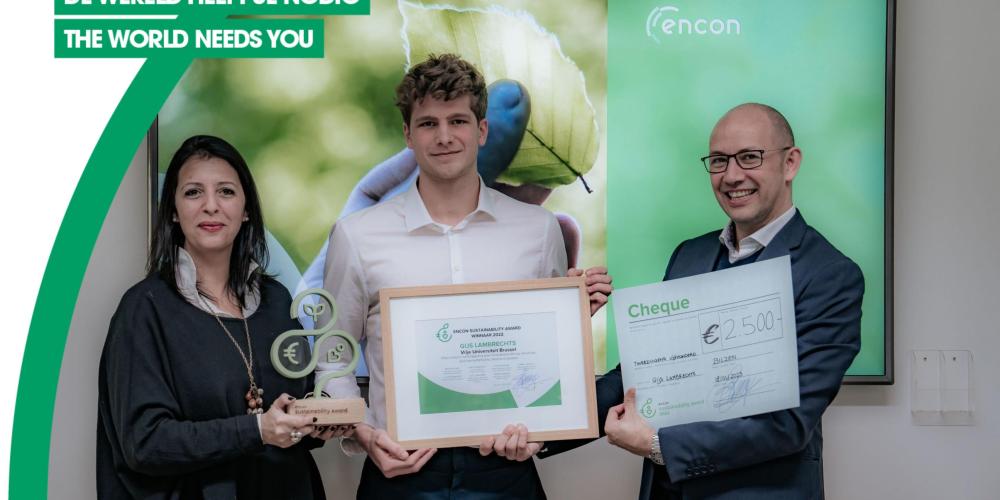
In a society where objective facts are losing their hold and public opinion is instead shaped by feelings and personal convictions, it’s sometimes difficult to know who to believe. This phenomenon is sometimes referred to as “post-truth”. VUB alumnus Gijs Lambrecht examines how a subject like climate change can be understood in this society and what the role of the journalist is.
Gijs Lambrechts studied communication and graduated in 2022. For his thesis he received the Encon Sustainability Award, which rewards research that makes a remarkable contribution to the development of sustainable solutions from a social science point of view. He examined how journalists report on climate change in a world characterised by post-truth.
You received an Encon Sustainability Award for your thesis. What was it about?
I wrote about how journalists report on a topic like climate change. I chose that topic because it is more relevant than ever given the increasing problems with fake news and post-truth. I wanted to explore how journalism plays a role and how journalists can contribute. The conclusion? Journalists play a crucial role by providing information, but they operate in an increasingly complex and polarised post-truth world. In addition to the exact science, the economic, political and social dimensions also influence the messaging around climate change.
How do we motivate people who want to help bring about change but are confused?
I sometimes get despondent following the political news and messaging around climate change. I wonder how young people can stay motivated to bring about change if the urgency is not always understood. I think they need to keep inspiring each other. Small groups can initiate change, as has happened in the past, which is why young people need to stay involved in initiatives that seek to encourage change, such as the climate marches.
Who do you expect a lot from when it comes to climate and climate research?
Belgium has many climate scientists who excel in their field, such as Jean-Pascal van Ypersele. He has the chance to become chair of the Intergovernmental Panel on Climate Change, the world’s largest climate body. However, my thesis also shows there is room for improvement in disciplines other than climate science, such as communication, political and economic sciences. There needs to be more research into the relationship between climate change and aspects such as post-truth and fake news, debt, inequality and ultimately elections. It’s about the long-term view, not just short-term gains.
Which scientists have really inspired you?
Jill Peeters and Luc Pauwels in particular. During my interview with Jill Peeters, DPG Media’s weather presenter and a trained climate scientist, she confirmed my findings about a lack of expertise in journalism. The book by Luc Pauwels, energy specialist at VRT NWS, also confirmed my findings.
You’re continuing your studies with a second master’s in economics. How are you trying to ensure your impact on society?
I think it’s unfair that social scientists are criticised for not having enough economic knowledge. When I presented my thesis, I was also asked economic questions about things like the business model, profitability and willingness to pay. I think it’s important to understand the economic arguments to complement the rest. I am and will still be a social scientist.